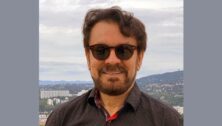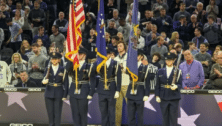Chester County Leadership: University of Valley Forge, President Don Meyer, Ph.D.
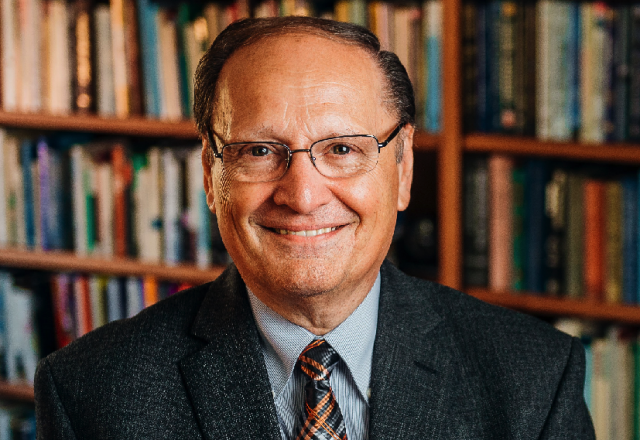
 The University of Valley Forge (UVF), formerly Valley Forge Christian College (VFCC), is a four-year, residential university south of Phoenixville operated by the Assemblies of God denomination. The school, whose mission is to prepare individuals for a life of service and leadership in the church and in the world, has an enrollment of over 1,040 students, offers more than 50 undergraduate programs of study and eight graduate programs.
The University of Valley Forge (UVF), formerly Valley Forge Christian College (VFCC), is a four-year, residential university south of Phoenixville operated by the Assemblies of God denomination. The school, whose mission is to prepare individuals for a life of service and leadership in the church and in the world, has an enrollment of over 1,040 students, offers more than 50 undergraduate programs of study and eight graduate programs.
Dr. Don Meyer, the University of Valley Forge’s 10th President and Phoenixville Regional Chamber of Commerce’s 2015 Outstanding Citizen of the Year, spoke to VISTA Today last week about growing up on a dairy farm in Lebanon County, how his life was redirected when his father died suddenly when Dr. Meyer was Freshman in high school, his decision to go to college, the wisdom and leadership skills gained at Central Bible College in Springfield, Missouri and his immediate plans for the school he’s led since 1997.
Where were you born Dr. Meyer?
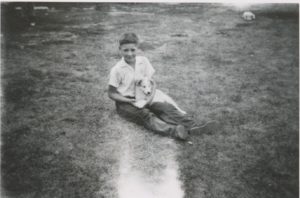 I was born just outside of Lebanon, Pennsylvania. My entire family is Pennsylvania Dutch with my family names of Meyer, Gibble, Crouse and Longenecker. My parents spoke fluent Pennsylvania Dutch and they operated a 150-acre dairy farm with more 30 Holstein cows. I was raised as a member of the Church of the Brethren.
I was born just outside of Lebanon, Pennsylvania. My entire family is Pennsylvania Dutch with my family names of Meyer, Gibble, Crouse and Longenecker. My parents spoke fluent Pennsylvania Dutch and they operated a 150-acre dairy farm with more 30 Holstein cows. I was raised as a member of the Church of the Brethren.
What memories do you have of growing up on the farm?
Farming is a great place to raise a family. Like most farmers, we didn’t have a lot of money, but we always ate well. We immersed ourselves in the community and the environment. Many of our immediate and extended family member were also dairy farmers. We were very active in church and we played lots of softball. We would work on our chores during the day then, as we had opportunity, would play softball in the make-shift open space within our old apple orchard.
Where did you go to high school?
![Scan 2[1]](https://vista.today/wp-content/uploads/2016/02/Scan-21-215x300.jpeg)
The farm played a big role in your early life?
Yes. Because my father died when I was just 15 years old and he was in his mid-forties, our family had the farm operation to maintain. My three siblings and I would do our chores with the dairy farm before school and then again as soon as we came home in the evening.
Did the community step up and help your family when your father passed?
Yes, especially many of our relatives and church family. Mr. Cecil Williams, our high school shop teacher, often stepped in and gave us important advice as a mentor.
What life lessons did you take from growing up on the farm that guides your life today?
Because of my father’s passing, our family became very serious about life very early. In other words, we were forced to grow up fast. We all developed a strong work ethic, because we knew if it was going to get done, we had to do it. Additionally, my mother’s influence was profound. For example, whenever a piece of equipment would break down, she would remind us of life’s priorities by saying “It’s just at the barn.” That always reminded us that even bad news could be viewed in the context of what really mattered.
When did you notice your life’s focus shifting away from farming?
When my father died, I began to sense a redirection of my life. Up to that point, I had intended to go into farming but with his passing, it was as though God was saying to me that there was more to life than dairy farming in Lebanon County. Right around that time, my grandmother introduced me to Guideposts Magazine, a monthly publication published by Norman Vincent Peale. Reading Peale’s writings changed my life. I moved from a passive approach to leadership to a more proactive approach to life and leadership.
With all of these things happening, being the best dairy farmer in Lebanon County was no longer so important. Matters of eternal value took on greater significance to me. And though I was extremely shy and speaking in public was pure agony, I felt this divine compulsion to move toward public ministry.
After I graduated from high school in 1963, I worked for a year on our family farm. I wasn’t certain that I should attend college because I was receiving advice that I should move immediately into a ministerial role without preparation. It was my father’s cousin who gave me this advice, “The time you take to sharpen your tools is never wasted.” That advice changed my life because it confirmed the need for me to get preparation before I moved into vocational ministry.
Why did you choose Central Bible College in Springfield, Missouri when there were so many wonderful schools closer to home?
I looked at three colleges. I had a Methodist pastor friend who encouraged me to consider Fort Wayne Bible College. I also had heard about Moody Bible Institute in Chicago Illinois, so I applied there as well. My Assemblies of God pastor encouraged me to consider Central Bible College. I applied and was accepted at all three.
Did Central Bible end up being a good choice?
My experience at Central Bible College were transformational in every way. I met my wife, Evie, there during my sophomore year. My professors poured into me their wisdom where I acquired leadership tools and a perspective that I really could make a difference. Evie and I got married during my final year of college. And from there we pastored a church in northwestern Pennsylvania for seven years.
Tell me about your journey from being a graduate student to becoming president of the University of Valley Forge in Phoenixville, PA?
From our church in Franklin, Pennsylvania, I attended the Wheaton Graduate School in Wheaton, IL where I earned my Master’s Degree. At age 30 I was invited to serve as a professor at North Central University in Minneapolis, MN. After three years I was asked to become the Academic Dean and eventually the Vice President of Academic Affairs. I served in that role for 18 years until one of my mentors, Dr. Don Argue, nominated me for consideration as president here at the University of Valley Forge.
When we came for our interview, the campus had enormous needs for improvement. Nevertheless, Evie and I felt a sense of peace that we should consider coming. The UVF Board of Trustees invited us to come and we have been grateful ever since.
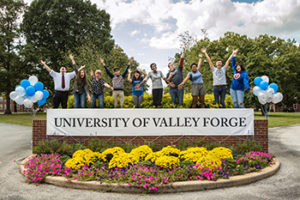
With the start of the New Year Dr. Meyer, what challenges and opportunities are the horizons?
During my first week on campus 20 years ago, one of our alumni named Don Storms asked me, “How big are your dreams for this school?” I was brand new in the position and dint’ know how to answer, “How large can they be, they can be as great as whatever God has in store.” Three months later Mr. Storms committed $3 million dollars for the construction of our first new building on campus, a library. His donation created momentum for enormous additional support from friends and alumni across the northeast and beyond.
We are continuing to develop our campus with our online program, improved facilities and additional curriculum. We are in our final year of NCAA Division III provisional status. We all have many dreams for the development of the University as we move into this new year of 2016.
What is the best piece of advice anyone ever gave you?
Early in my life the best advice that was given to me was, “The time you take to sharpen your tools is never wasted.” If I were asked what the best advice is that I could give, it would simply be, “Keep growing.”
Connect With Your Community
Subscribe to stay informed!
"*" indicates required fields





















![95000-1023_ACJ_BannerAd[1]](https://vista.today/wp-content/uploads/2023/03/95000-1023_ACJ_BannerAd1.jpg)

























